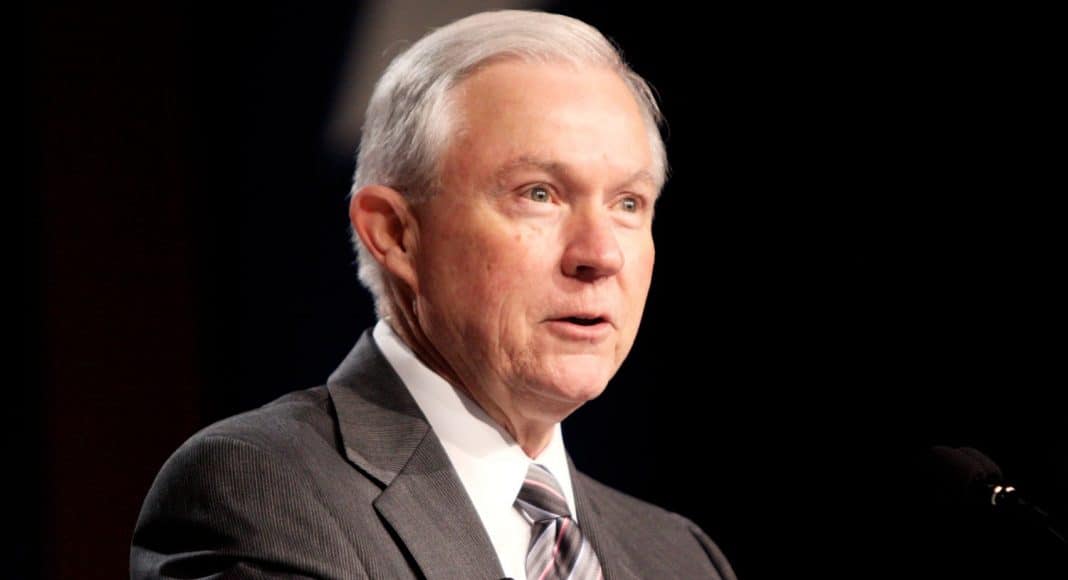What to make of Jeff Sessions as the nation’s next Attorney General? Well, first, if you oppose his nomination: Take a deep breath. He is going to be confirmed; he is going to be Attorney General. It’s fantasy to think Sessions’ nomination will be derailed.
Once you’ve achieved acceptance, it’s important to think about what he will be like as Attorney General. There is no doubt he will be a staunch opponent of immigration reform, work hard to deport as many undocumented individuals as possible, try to OK every abortion restriction the Congress can get passed, and make conservative orthodoxy mainstream in the Department of Justice.
But what will he do with marijuana policy? This issue is a tricky one because he has spent a career as a fierce drug warrior. However, after a question from Sen. Patrick Leahy (D-Vt.) about enforcement of CBD oil in states that have reformed their laws, Sessions responded:
“I won’t commit to never enforcing federal law, Senator Leahy. But absolutely it’s a problem of resources for the federal government. The Department of Justice under Lynch and Holder set forth some policies that they thought were appropriate to define what cases should be prosecuted in states that have legalized at least in some fashion some parts of marijuana. I think some of them are truly valuable in evaluating cases but fundamentally, the criticism I think that was legitimate is that they may not have been followed. Using good judgment about how to handle these cases will be a responsibility of mine.”
So, what does this mean? It’s a tap dance for sure. But it suggests that as Attorney General, Jeff Sessions knows that accounting is as important as enforcement. The Justice Department has an annual budget of over $27 billion — a ton of money, for sure. But it gets spent fast.
Jeff Sessions knows this. Every US government administrator — from the manager of a small division of a bureau to a cabinet secretary — has to make choices about how to spend funds. For an Attorney General, that means making hard choices about where, when, and to what extent to enforce laws. Prosecutors cut plea deals not only because they guarantee convictions, but because they also save money. Law enforcement officials make choices like these everyday, and Jeff Sessions will have to do the same.
On marijuana, Sessions faces choices. He can crack down on government officials, companies, investors, working within regulated industries in the states that have reformed marijuana laws. That’s low hanging fruit. It’s easy to know who these people are, where they are operating and the extent of their violations of federal law — because they are doing it in the open.
However, Sessions will be reminded constantly that every dollar he uses to shut down a legal recreational dispensary in Denver or raid a medical marijuana grower in San Francisco or arrest a cancer patient in Boston, is one less dollar he can spend on cracking down on illegal international marijuana supply networks; distributors of fentanyl; peddlers of heroin or other black market, unregulated sources of the world’s most dangerous drugs.
For an Alabama Senator, it is easy to group a state-legal, regulated marijuana operator, doling out bud in Seattle with a black market smuggler of fentanyl, nervously overseeing a shipping container crossing the Pacific. However, as Attorney General, it’s not that easy.
Sessions’ testimony blends a commitment to the rule of law with a pragmatic approach to governing — something geeks like me at the Brookings Institution call “enforcement discretion.” He was clear that he didn’t think the Holder/Lynch policies (likely meaning the Cole & Ogden Memos) were wrong. In fact, he called them “truly valuable.” His concern was that the DOJ hasn’t been faithful to those policies — something few would disagree with.
- RELATED STORY: 11 Essential Books About Marijuana
This is not to say Jeff Sessions will be a warrior for the status quo — what I call the “Obama Doctrine on Marijuana.” But, he’s not the marijuana industry’s angel of death either. Yes, he will join hands with the soon-to-be-named DEA chief and drug czar, at the pulpit of conservative government, and preach the gospels of prohibition. Yes, you’ll probably see some state-level crackdowns, as well.
But, as Marijuana Majority’s Tom Angell has pointed out, on marijuana, Sessions sounded a lot like Loretta Lynch did in her confirmation hearing. And if Attorney General Sessions behaves more like Loretta Lynch and Eric Holder than … well … Senator Sessions, the marijuana industry, its consumers and patients will breathe a sigh of relief.
John Hudak is deputy director of the Center for Effective Public Management and a senior fellow in Governance Studies. Hudak is also the author of Marijuana: A Short History, which offers a unique, up-to-date profile of how cannabis emerged from the shadows of counterculture and illegality to become a serious, even mainstream, public policy issue and source of legal revenue for both businesses and governments.
Related Stories
[soliloquy id=”24090″]


